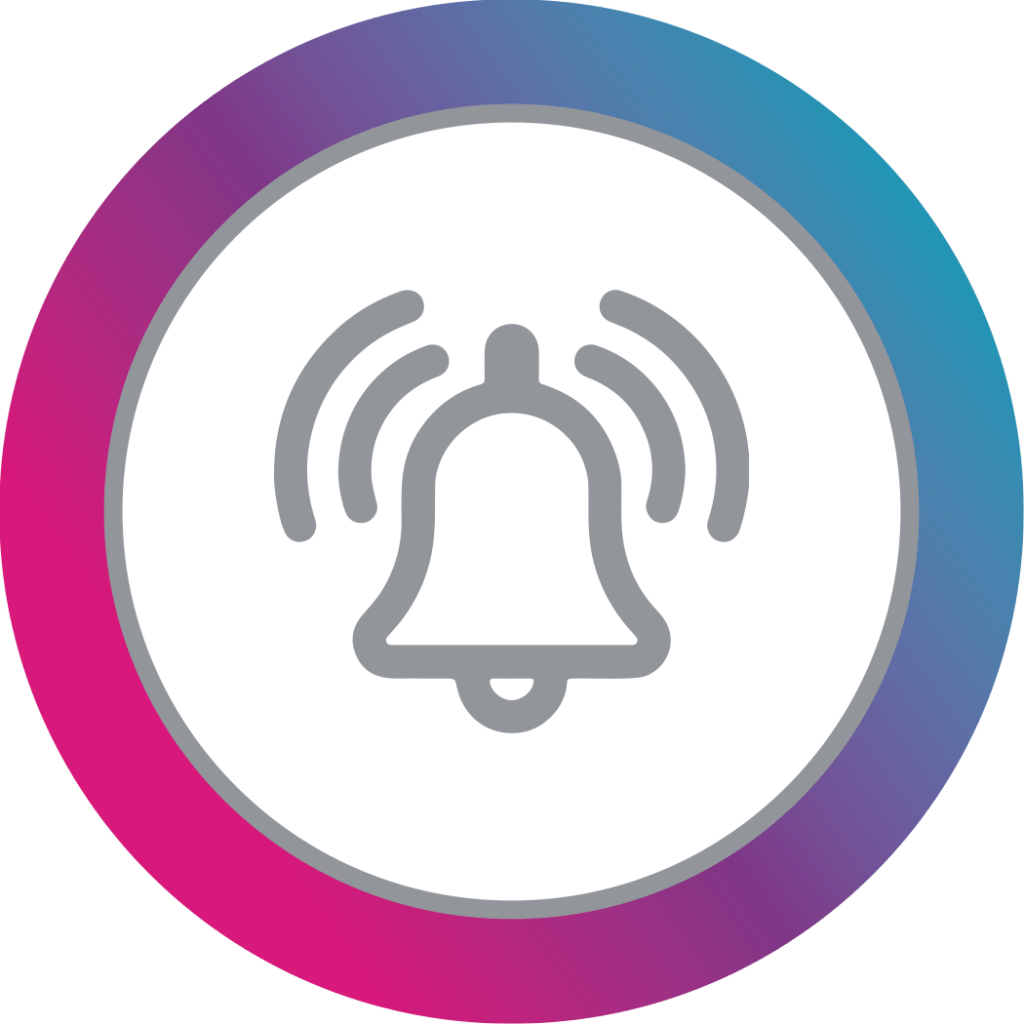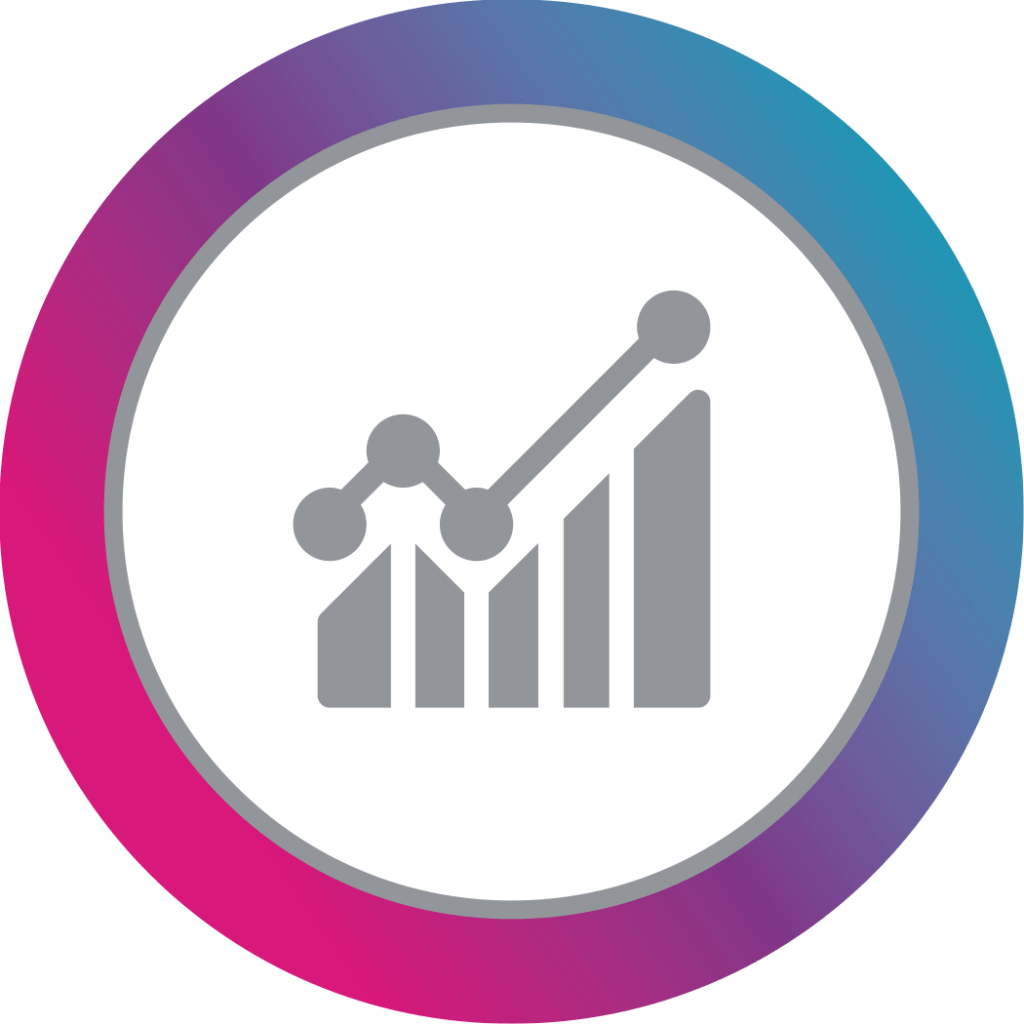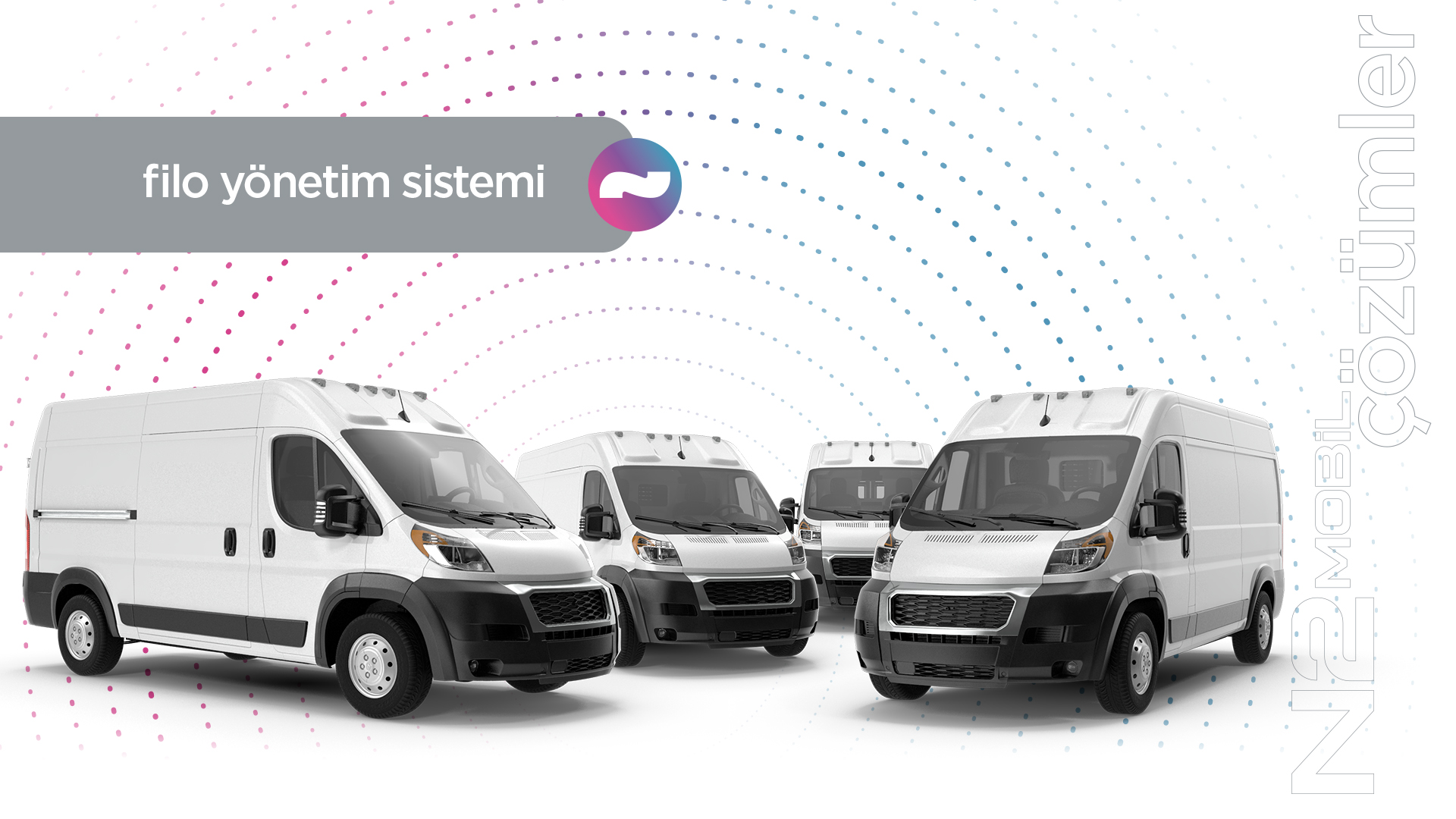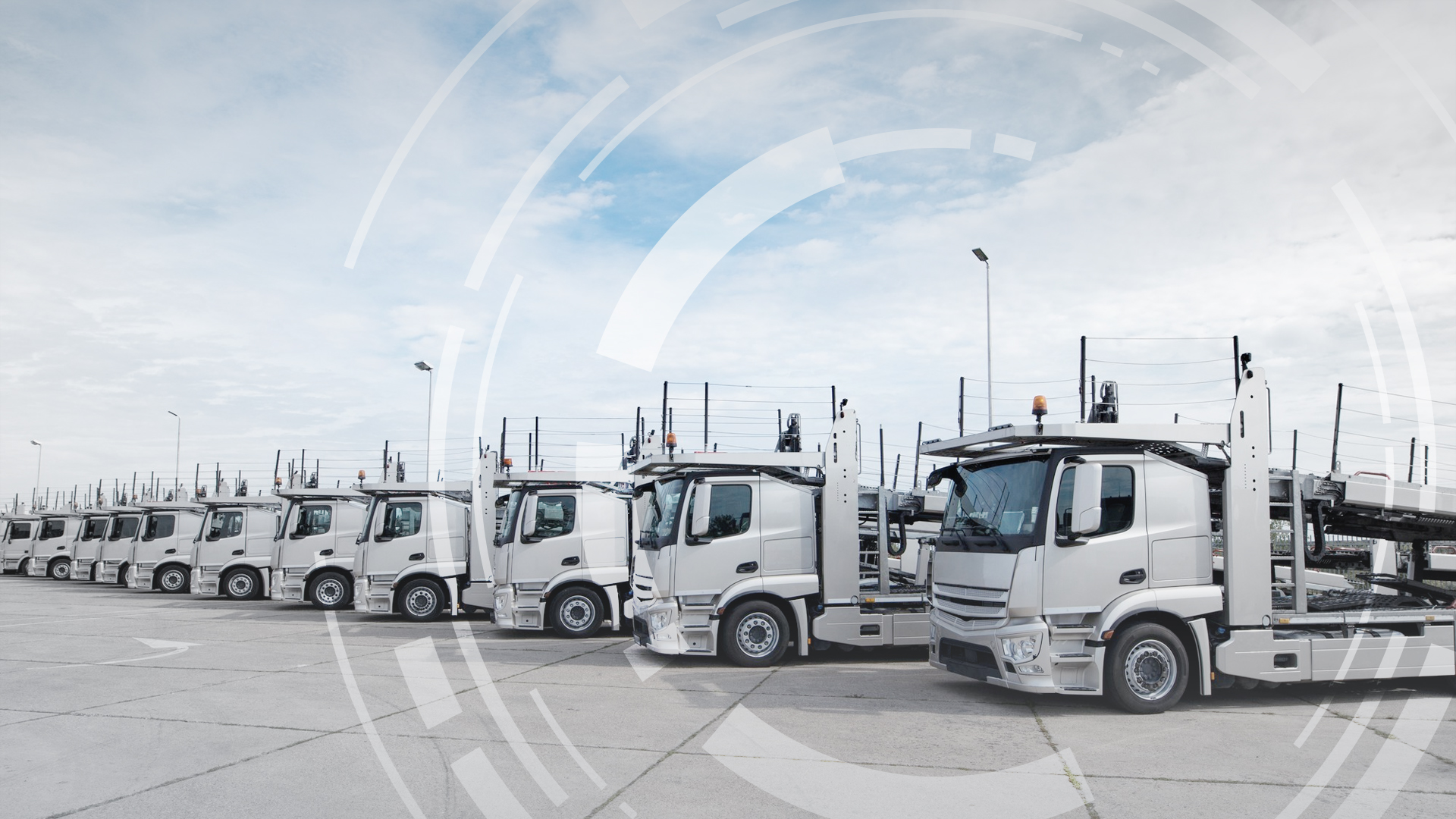
Instant Speed Information

Multiple Alarms

Driver Recognition Unit

Engine Blocking

Canbus Data

Temperature and Humidity Sensor

Panic Button

Fleet management is the sum total of the operational process of managing vehicles. It offers readily available data on everything from total vehicle capacity to tracking their maintenance, allowing you to get more out of your fleet.
This increasingly popular software is a necessity, especially for logistics companies. It provides great convenience in all forms of business that involve other purchases and sales, production from raw materials, in short, all types of shipments. The software, which contributes greatly to the economical use of the company budget, also allows vehicle maintenance to be carried out without interruption.
Ensuring that logistics business processes operate safely and efficiently requires a great effort. With fleet management, the goal is to increase efficiency and productivity while at the same time ensuring the safety of drivers and vehicles. In this way, companies of all sizes are helped to manage their fleets more effectively, increase sales and improve customer satisfaction.

Fleet management refers to a wide range of solutions that allow companies to manage their commercial vehicle fleets. Fleet management is about managing vehicles such as cars, vans, trucks and buses, and equipment such as trailers, cranes and containers. The goal is to use these resources as efficiently and safely as possible, including proper maintenance. With the help of a fleet management system, you manage your fleet more efficiently, cost-effectively and in an environmentally responsible way.
Fleet management deals with vehicle tracking, fuel consumption monitoring, monitoring and improving driving behavior, timetables, timely notification of maintenance, etc.

GPS fleet tracking is the core of a fleet management system. Fleet tracking is made possible by a GPS system that works via GPRS (a technique on the GSM network), satellite, radio or a combination of all three. Sending data via satellites is costly, but is most effective for vehicle tracking in remote areas with a weak mobile signal. Communication via satellites is also essential for vehicle tracking in areas where, for example, high plains or mountains limit the range of a GPRS signal.
Fleet management refers to the management and organization of commercial vehicles. Vehicle tracking is the basis for this and works using telematics. This allows a fleet manager to check the location, driving behavior and maintenance status of vehicles. In this way, fleet management can provide improved safety and risk mitigation. Asset tracking is a useful fleet management feature for some industries. For example, work vehicles such as cranes, bulldozers, semi-trailers and other specialized vehicles can be managed.
The overall goal of fleet management is to increase efficiency and productivity. In addition, the safety of drivers and vehicles is automatically increased. A fleet management system that provides accurate traffic information is one of the basic needs of many logistics companies as it prevents delays caused by closed roads. This enables the fastest routes, less time on the road and, most importantly, special road planning for large terrains.

Fleet management can involve complex decisions. Many factors need to be considered for everything to run smoothly. Not only do you need to choose the right vehicles and drivers, but there are many other things fleet managers need to consider, such as ensuring safety, reducing costs, increasing efficiency, and ensuring compliance with laws and regulations.
A telematics-based fleet management solution provides an understanding of all these aspects. With access to the right data, you can improve your business processes and grow your business.
Your vehicles are an important source of data. With clear information about location, routes taken, fuel consumption, mileage and driving style, they optimize every step in your fleet management. So you gain more insight with access and control over your vehicle data. Effective fleet management gives your company a big boost.

The fleet management system contains data about your entire fleet. It is possible to obtain everything you want to know about your fleet with N2Mobil Fleet Management module. General features of fleet management systems can be listed as follows:
Vehicle tracking: Vehicle tracking systems allow the fleet manager to determine the exact location of all vehicles in the fleet. In the event of an incident, they can send help and resume service as soon as possible to minimize delays for customers.
Vehicle status notifications: Allows you to receive alerts about the status of a vehicle. These are reports about speeding, vehicles not reaching their destination, vehicles being stationary for too long and unauthorized driving.
Hotspots: You find and categorize points of interest near your customers. For example, the nearest gas station, rest areas, special facilities. By analyzing routes, you improve the service you provide to your customers and make it more efficient.
Communication with the driver: It is possible to send instructions, commands and messages directly to the driver about specific routes or new destinations. The driver responds to the messages and confirms the instructions.
Monitoring driving behavior: Managers analyze data on fuel consumption, speed, braking behavior and engine usage to understand potential problem areas. This data is then used to train and guide drivers.
Driver statistics: Stores various statistics of all employees. This data includes the sum of hours worked and time spent traveling. This helps to manage productive hours and employee safety, taking into account appropriate working hours and rest breaks.
Route planning: Using near real-time traffic information, fleet managers plan routes and reorganize the process to avoid traffic jams and delays.

Fleet managers are not the only ones who benefit from a fleet management solution. Drivers, administrative staff and everyone else involved in the fleet also benefit. Fleet management technology can benefit companies in many areas and optimize business processes.
Provides Access to Fleet Management Database
Fleet database is an interactive and smart vehicle list with valuable information about your vehicles such as suppliers, color, chassis number, etc. The database provides information about the classification and maintenance of vehicles, so you have easy access to all kinds of information. N2Mobil is also aware that different companies have different tracking needs. Therefore, it allows you to put together your own configuration with unique fleet management functions for you.
Creates a Safer Working Environment
With fleet management you have the opportunity to create a safe environment for your employees. Fleet managers can identify careless driving or problematic roads and provide adequate training opportunities. At the same time, monitoring maintenance status ensures that your employees can continue to safely operate all vehicles. These factors contribute to the work experience, such as increased satisfaction, effort and productivity.
Drivers will drive more carefully and economically when they know their driving behavior is being monitored. Thus, by using a fleet management system, you ensure that your drivers cause fewer accidents.
Reduces Fuel Consumption and Maintenance Costs
Fleet management technology gives managers the opportunity to identify problems early and save costs. For example, it is very easy to manage maintenance schedules by monitoring mileage and other vehicle performance indicators through the dashboard. This system can help extend the life of vehicles in the fleet.
By saving on fuel costs and enabling drivers to drive more efficiently, you reduce your company’s impact on the climate. When all companies need to become more sustainable, fleet management is definitely an application you can benefit from.
Offers Improved Reporting
You analyze the long-term performance of your fleet. It is possible to view key trends by teams, departments or the entire fleet. Dedicated dashboards make it easy to track your progress in terms of KPIs or budgets. This is done with real-time fleet analytics provided through the fleet tracking system. Among other factors, these analyses include distances traveled, idling time, stopping times, vehicle activity (working hours) and dangerous driving behavior.
Improved Customer Satisfaction
Customers also benefit from fleet management technology. Reservations, appointment reminders and notifications are easy to send and help increase customer satisfaction. Customers track the goods or services they order, receive status updates and see estimated arrival times.
Increases Your Productivity
It allows you to save time between departments by automating administrative tasks. You also have easy access to relevant and up-to-date information, so you can make an effective schedule and adjust it quickly in case of unexpected events.
Helps Solve Problems During Transportation
Thanks to a camera or telematics in the vehicle, you learn more about the actual activities of the fleet. Such integrations and extensions are essential to understand on-board diagnostic data and provide a complete overview and evidence of the activities performed. In this way, driver monitoring can be easily ensured. In addition, the reports and documents provided instantly with these cameras are also very effective in solving potential problems.
It allows you to collect evidence in case of fines and sanctions. Provides specialized information (i.e. PTO, temperature, engine speed) and data from multiple and non-integrated information sources. It plays a big role in solving problems such as not tracking alerts and geofence entries/exits. For fleet safety, it provides location, speed, and more for suspicious events that cannot be detected in the field.
What does a fleet manager do?
Fleet managers oversee the operations and maintenance of a company’s fleet. Their job description includes selecting and monitoring vehicles and making sure they are used correctly, driven on the right routes and properly maintained. It is also the job of fleet managers to manage drivers, control fleet-related costs and ensure compliance with laws and regulations.
Fleet managers often rely on a combination of vehicle telematics and fleet management software and hardware to improve the effectiveness and efficiency of their fleet.
Who is fleet management suitable for?
Fleet management is suitable for all large and small companies that somehow ship, transport goods and supply materials.
Does fleet management avoid fines?
Fleet management, which monitors your speed and driving patterns, also allows you to see the location information both instantly and the route in advance, so you can complete the route without getting a toll or speeding ticket. Since you are aware of many issues, you are prepared and the journey is completed smoothly.
Does fleet management prevent theft?
Fleet software, which allows you to manage your vehicle fleet flawlessly, also reports the location of your vehicle or vehicles in case of theft, as it instantly reports the location of each vehicle and records the journey. It records the route traveled and you will be aware of everything that happens with the camera system.
What is the contribution of fleet management to workload?
Fleet management is an important software, especially in terms of facilitating the work of managers. It enables tracking of many issues from one place and allows instant reporting of information that needs to be known during shipment. In this way, problems that may arise in calculation, routing and driver safety are eliminated. Most importantly, it saves time for managers.
If you want to determine the right strategies on critical issues such as fleet risk management, fuel management, fleet maintenance and fleet costs and increase the safety of your employees, you can benefit from the fleet management service offered by N2Mobil.

© 2023